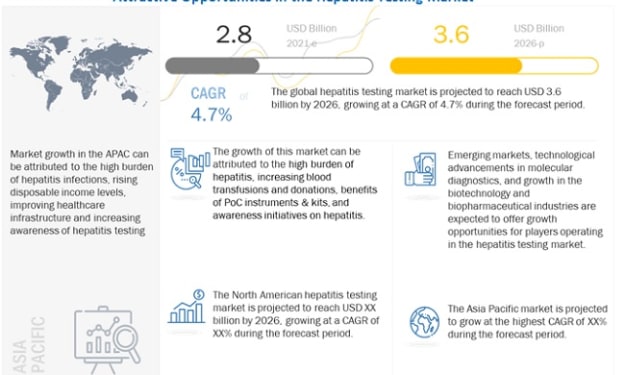Does College Graduation Lead to Higher Earnings?
An In-Depth Analysis

### Does College Graduation Lead to Higher Earnings? An In-Depth Analysis
Education is often touted as the key to financial success, with many people believing that earning a college degree will inevitably lead to higher income. This belief has fueled the rise of higher education institutions and has become a major life goal for many young people. But does this conventional wisdom hold true? Do college graduates really make more money? Let's dive into the data, explore various perspectives, and consider the broader implications to provide a comprehensive answer to this question.
### The Earnings Premium for College Graduates
Numerous studies have consistently shown that, on average, college graduates do indeed earn more than their peers without a degree. According to the U.S. Bureau of Labor Statistics (BLS), in 2020, the median weekly earnings for workers with a bachelor’s degree were $1,305, compared to $781 for those with only a high school diploma. This translates to an annual difference of approximately $27,248, highlighting a significant earnings premium for those with a college degree.
### The Long-Term Financial Benefits
The financial advantages of obtaining a college degree extend beyond immediate earnings. Over a lifetime, the cumulative effect of higher annual earnings can be substantial. The Georgetown University Center on Education and the Workforce reports that bachelor’s degree holders can expect to earn, on average, $2.8 million over their lifetime, compared to $1.6 million for high school graduates. This $1.2 million difference underscores the long-term financial benefits of higher education.
### Variations by Field of Study
While the average earnings premium is clear, it's important to note that the financial benefits of a college degree can vary significantly depending on the field of study. STEM (Science, Technology, Engineering, and Mathematics) graduates, for instance, often command higher salaries compared to those in the humanities or social sciences. According to the National Association of Colleges and Employers (NACE), the average starting salary for engineering graduates in 2020 was $69,961, compared to $52,086 for graduates in the liberal arts.
### The Role of Graduate and Professional Degrees
Further education beyond a bachelor’s degree can also have a substantial impact on earnings. Professional degrees in fields such as medicine, law, and business often lead to significantly higher salaries. The BLS data shows that individuals with professional degrees have median weekly earnings of $1,893, which is markedly higher than those with only a bachelor’s degree. However, these advanced degrees come with their own set of challenges, including higher costs and longer periods of study.
### The Cost of College Education
While the financial benefits of a college degree are evident, it's crucial to consider the cost of obtaining that degree. The average cost of tuition and fees for the 2020-2021 academic year was $10,560 for in-state students at public colleges, $27,020 for out-of-state students at public colleges, and $37,650 for students at private colleges. This does not include other expenses such as room, board, and textbooks, which can add significantly to the overall cost.
### Student Loan Debt
The rising cost of college has led to an increase in student loan debt, which can offset some of the financial benefits of higher earnings. According to the Federal Reserve, the total student loan debt in the U.S. stood at over $1.7 trillion in 2021, with the average borrower owing approximately $37,000. This debt burden can impact graduates' financial stability and delay milestones such as buying a home or starting a family.
### Return on Investment (ROI)
When considering whether college leads to higher earnings, it's useful to think in terms of return on investment (ROI). ROI in education can be calculated by comparing the total cost of obtaining a degree to the additional earnings a degree holder can expect over their lifetime. Despite the high upfront costs, the ROI for a college degree remains positive for most graduates. A study by the Brookings Institution found that the average ROI for a bachelor’s degree is around 15%, which is higher than many traditional investments.
### The Impact of Economic Conditions
Economic conditions can also influence the earnings gap between college graduates and non-graduates. During economic downturns, individuals with higher education levels tend to have better job security and lower unemployment rates. The BLS reported that in 2020, the unemployment rate for individuals with a bachelor’s degree was 5.5%, compared to 9% for those with only a high school diploma. This job security can be particularly valuable during times of economic instability.
### Non-Monetary Benefits of a College Degree
Beyond the financial aspects, college education provides numerous non-monetary benefits. College graduates often have better job satisfaction, improved health outcomes, and more opportunities for personal and professional growth. They also tend to have stronger social networks, which can provide additional career opportunities and support systems.
### The Role of Experience and Skills
While a college degree can open doors, experience and skills play a crucial role in career advancement and earnings. Employers often value practical experience and soft skills such as communication, problem-solving, and teamwork. Internships, part-time jobs, and extracurricular activities during college can enhance these skills and make graduates more competitive in the job market.
### The Influence of Networking
Networking is another significant factor that can impact the earnings of college graduates. College provides numerous opportunities to build professional connections through professors, alumni, and peers. These networks can lead to job opportunities, mentorship, and career advancement, further enhancing the financial benefits of a college degree.
### The Case for Alternative Education Paths
While the data supports the notion that college graduates generally earn more, it's important to recognize that college is not the only path to financial success. Many individuals find lucrative careers through vocational training, apprenticeships, and entrepreneurial ventures. Skilled trades such as plumbing, electrical work, and welding can offer high-paying jobs without the need for a traditional college degree. Moreover, the rise of coding boot camps and online certifications provides alternative routes to well-paying tech jobs.
### Personal Stories and Real-Life Examples
To bring this discussion to life, consider the stories of two individuals: Emily and Jake.
Emily graduated from a reputable university with a degree in computer science. Her first job out of college paid $75,000 per year. Over the next five years, she advanced to a senior developer position, earning $120,000 annually. The skills and knowledge she gained in college, along with her networking efforts, played a crucial role in her career growth.
Jake, on the other hand, chose a different path. After high school, he completed an apprenticeship program in electrical work. His starting salary was $40,000, but within five years, he became a licensed electrician and started his own business. Jake now earns over $100,000 per year and enjoys the autonomy and flexibility of running his own company.
Both Emily and Jake found success through different routes, highlighting that while college can lead to higher earnings, it is not the only path to financial stability and career satisfaction.
### Addressing Inequities in Access to Higher Education
It's also essential to consider the disparities in access to higher education. Socioeconomic status, race, and geographic location can impact an individual's ability to pursue a college degree. Efforts to make higher education more accessible and affordable, such as scholarships, financial aid programs, and community college initiatives, are crucial in ensuring that the benefits of a college degree are available to a broader population.
### Conclusion: Is College Worth It?
So, do college graduates make more money? The evidence suggests that, on average, they do. The financial benefits of a college degree, including higher annual earnings, better job security, and long-term career growth, are significant. However, these benefits must be weighed against the costs of obtaining a degree, including tuition, fees, and potential student loan debt.
Moreover, the value of a college degree can vary depending on factors such as the field of study, the individual's career goals, and their ability to leverage skills and networking opportunities. It's also important to recognize that college is not the only path to financial success, and alternative education and career paths can also lead to lucrative and fulfilling careers.
Ultimately, the decision to pursue a college degree should be based on a thorough consideration of one's personal and professional goals, financial situation, and the potential return on investment. By making informed choices and taking advantage of available resources, individuals can navigate the complex landscape of higher education and achieve their desired financial and career outcomes.
About the Creator
Local Man
I am a dedicated writer known for my versatility and creativity. With a strong passion for storytelling, engaging content across a variety of genres, including articles, blogs, and copywriting.
Enjoyed the story? Support the Creator.
Subscribe for free to receive all their stories in your feed. You could also pledge your support or give them a one-off tip, letting them know you appreciate their work.






Comments
There are no comments for this story
Be the first to respond and start the conversation.